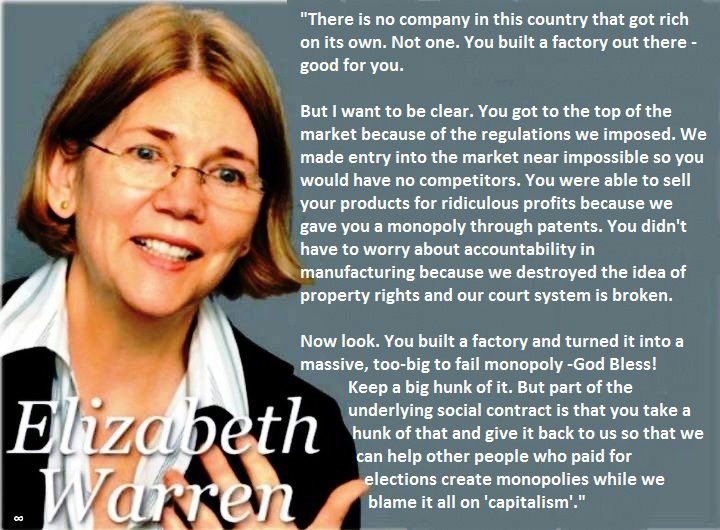The Technology, Entertainment, and Design (TED) conference is fairly well known by the denizens of the Internet. TED’s tagline is Ideas Worth Spreading, and the conference is supposedly about spreading new and innovative ideas. Most of my friends absolutely love to watch TED videos, and there is good stuff to be found, but the conference isn’t the open platform of ideas that many claim it to be. According to TED some ideas are more worth spreading than others:
If you’re plugged into the Internet, chances are you’ve seen a TED talk – the wonky, provocative web videos that have become a sort of nerd franchise. TED.com is where you go to find Facebook COO Sheryl Sandberg explaining why the world has too few female leaders, or Twitter cofounder Evan Williams sharing the secret power of listening to users to drive company improvement. The slogan of the nonprofit group behind the site is “Ideas Worth Spreading.”
There’s one idea, though, that TED’s organizers recently decided was too controversial to spread: the notion that widening income inequality is a bad thing for America, and that as a result, the rich should pay more in taxes.
TED organizers invited a multimillionaire Seattle venture capitalist named Nick Hanauer – the first nonfamily investor in Amazon.com – to give a speech on March 1 at their TED University conference. Inequality was the topic – specifically, Hanauer’s contention that the middle class, and not wealthy innovators like himself, are America’s true “job creators.”
A transcript of Hanauer’s speech can be found here. Reading it I must say that Hanauer has a better grasp on the market than most venture capitalists and almost any politician does. For example, he understands that the rich aren’t really the creators of jobs because if it isn’t for consumer demand there are no jobs to be created:
That’s why I can say with confidence that rich people don’t create jobs, nor do businesses, large or small. What does lead to more employment is a “circle of life” like feedback loop between customers and businesses. And only consumers can set in motion this virtuous cycle of increasing demand and hiring. In this sense, an ordinary middle-class consumer is far more of a job creator than a capitalist like me.
Trickle-down economics is an idea often espoused by “conservatives” and the idea is that tax breaks and other state benefits given to the cronies wealthy will eventually “trickle down” to benefit the less wealthy. The claim is that the wealthy will have more money to invest into business and that investment will create jobs and economic growth. This theory falls flat on its face because it doesn’t take into consideration the fact that investing all the money in the world into the creation of businesses is meaningless if nobody can buy the products. What good would Samsung be if there was nobody to buy their televisions or phones? Would Remington be able to function if nobody purchased their firearms?
Capitalism is about mutually beneficial trade. It relies on everybody being a producer and a consumer. An auto-mechanic produces working vehicles by expending his labor to repair others’ vehicles. In exchange for this the owners of those vehicles exchange the product of their labor, usually in the form of money. If the vehicle owner didn’t have a vehicle there would be no purpose for the auto-mechanic. If the auto-mechanic didn’t exist the vehicle owner would find themselves having to purchase a new vehicle every time their current one needed maintenance or repair. The agreement between the vehicle owner and the auto-mechanic is mutually beneficial, they both gain from the transaction.
Tax breaks and other benefits for the wealthy don’t give the less wealthy any advantage because it doesn’t free up any of their money to be used to purchase goods.
Hanauer’s education isn’t complete unfortunately because he still finds himself stuck in a cycle of false economic ideas:
And taxing the rich to make investments that grow the middle class, is the single smartest thing we can do for the middle class, the poor and the rich.
There is no way to use taxes to grow the middle class. Taxation is money that goes to the state and the state lacks the market feedback mechanism so is unable to invest money wisely. The market feedback mechanism determines whether or not resources are being invested wisely through an often vicious cycle of finical success and failure. If you’ve invested your resources wisely, that is if you’re using resources to produce products and services consumers want, you will receive more resources to use. Apple has managed to produce products and services a large number of consumer want and have been rewarded by great deals of wealth. They have demonstrated the ability to use resources wisely and are now being trusted with more resources.
On the other hand entities that use resources poorly face financial ruin. The DeLorean Motor Company went into bankruptcy because the produced a single model car and not many people wanted it. General Motors (GM) would have followed if the state didn’t prop them up. In fact GM is a perfect example of the state’s inability to judge the soundness of investments. GM distributed their resources poorly and were punished accordingly. Their resources went into paying overly high wages, pensions, salaries of higher ups, and automobiles that weren’t desirable enough to make up for the other erroneous spending. All of this caught up to GM and they started hemorrhaging money. Continues loss of money is the market’s way of informing you that you’re doing something wrong and need to correct it. GM didn’t correct its problems and thus was facing bankruptcy. Had the market been allowed to work GM would have went under and their resources would have been put up for sale so other entrepreneurs could buy them and attempt to put them to better use. Instead the state injected a ton of taxpayer money into a business that demonstrated an inability to managed resources meaning those new resources are likely to be squandered.
The state gains its money through force and therefore doesn’t have to face the possibility of failure. When it fails to make productive use of resources it can just steal more, there is no possibility of failure until its victims run out of money. Because of this the state can’t grow anything, it can’t even create wealth. I don’t believe I even need to go into the fact that the state doles our resources to its cronies and thus the middle class will never have a crack of getting those resources.
Hanauer appears to be on the right track and may eventually learn this fact and finally rid himself of the economic fallacy that taxation of any kind is desirable. He is correct that giving tax breaks and other state benefits to the wealthy isn’t the key to creating a solid economy but he is incorrect that taxing the wealthy is a good solution. Eliminating the state’s involvement in all economic matters is the way to achieve economic prosperity. Unfortunately that idea will probably never be spread by TED if they’re not even willing to spread Hanauer’s idea.

